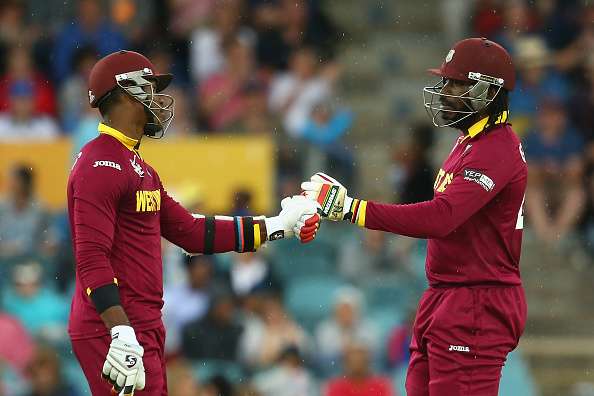It wasn’t just in the international set-up that there were ups and downs in the 1990s.
The Nineties era was almost like a hamster wheel. There were a lot of cynical old pros around the county scene and it was very much an ‘I’ll look after my own game and not worry about anyone else’ type of environment. You got by to get another contract, but it was quite a selfish era.
The cricket was quite negative. There were a lot of sporting, green pitches around and a lot of seriously quick bowlers, but batsmen made sure that when they got flatter pitches, they cashed in.
That’s how batsmen should think, but it was places like the Oval, Taunton and even Northampton. You made sure you dipped your bread when you got a really good pitch. It almost felt like batsmen sat down and said ‘I’m going to get a hundred there, get a big score there and make a double there’.
That made it slightly tough on the national selectors, because every Tom, Dick and Harry could make a score.
There’s so much more of a process to picking a squad now. There is a lot more information about opposition available now and coaches are a lot better. In the Nineties, it was very much coaches telling players how to go and play, leaving very little freedom to the players. It was their way or the highway.
The squads were a lot bigger than they are now, with second XIs being very strong as there was always an overseas pro in that team. You’d also have at least one or two, if not three or four, of the first-team squad playing there too.
That made it very difficult for junior players to get through and clubs knew the guys they were going to stay with and would back them over the next three to five years. It makes it sound like it was competitive to fight for places but in truth everybody knew the core six or seven that were going to play each week.
Sides were very settled and you needed to really rock the boat, or hope someone had a nightmare year, to be able to take a place. Players were backed for longer periods of time, and you’d be lucky to get in the first team before you were 25.
That was very much the same with England. You’d get in the team, then if you hadn’t performed after a handful of matches, you were saying your goodbyes. That’s wrong because the challenge was so different to what it was like around the counties.
There wasn’t an England Lions set-up like there is now, so there was no step between county cricket and internationals. Now guys are playing in all sorts of competitions and constantly facing international quality – you may as well be playing international cricket.
While the national side weren’t doing very well, it was still an incredibly fun time to be playing the game. Whether you were top of the Championship or bottom, that was irrelevant. It was about doing your utmost to give match-winning performances for your team.
You wanted to score hundreds, take diving catches and take stumpings. I always felt there was personal pride to play for and that’s all you can control. The rest is a by-product of you doing well.
I went on an England tour to Pakistan and Sri Lanka in 2000/01, although I didn’t play. I loved the experience but there were negatives. The senior players gave nothing to other people in the squad, and I thought that was very poor.
It’s something I made sure I changed at Leicestershire because there was very much the same attitude. I stood up and was counted in a team meeting at Grace Road. I told everyone that the senior players do not give enough to the junior players. When the younger lads went in, we felt alienated and didn’t feel like we were wanted. We needed to break down the barrier.
Some of the senior players weren’t happy with that statement, but the rest of the guys in that squad backed me up.
It worked though and things changed. The likes of Peter Willey and Jon Agnew left and then it was the new generation that came in and moved things forward.
Every generation learns from the few years previous to it. Just look at how much more together the current England team is in comparison with the few months after the Kevin Pietersen debacle took place.
Now it’s much more of a team environment, and I’d like to think I had a big part in that. Nasser Hussain said that I was the first guy to do fist bumps with my batting partner in the middle and it’s because I wanted to make sure we showed the opposition we were together and that it was us against them.
This piece originally featured in The Cricket Paper, Friday May 20 2016















